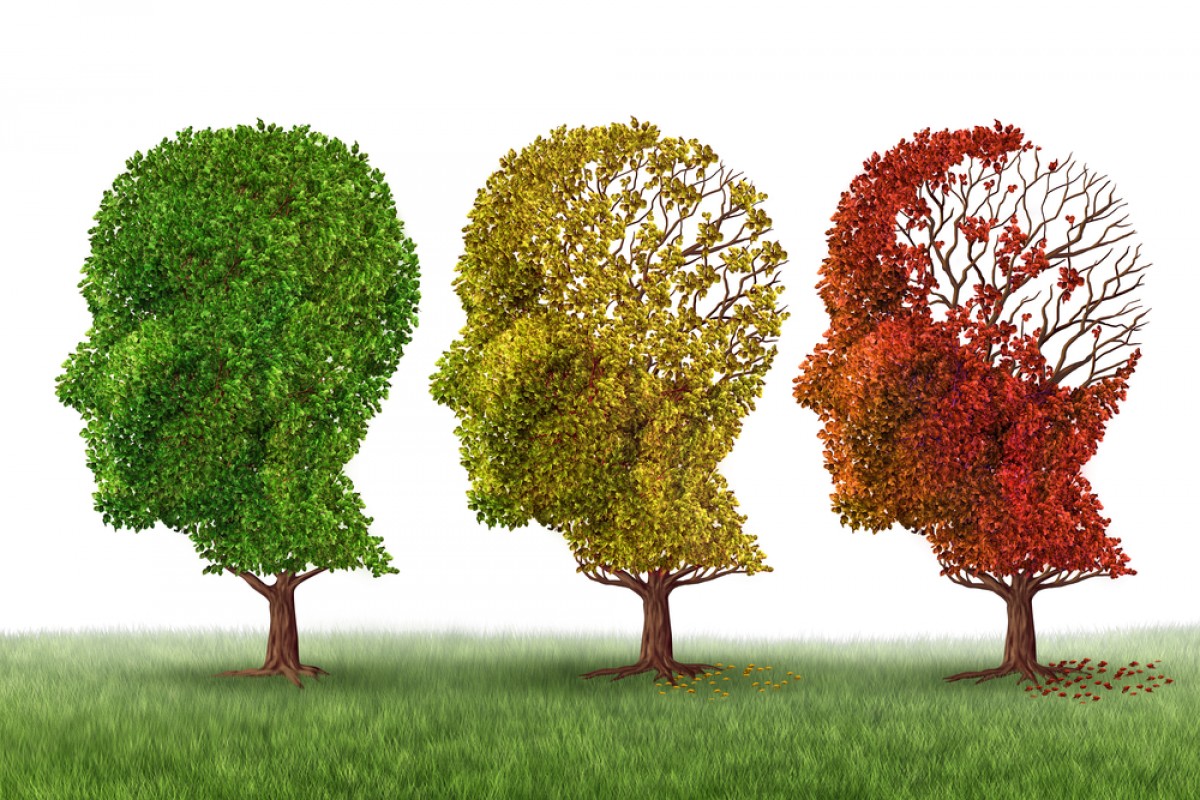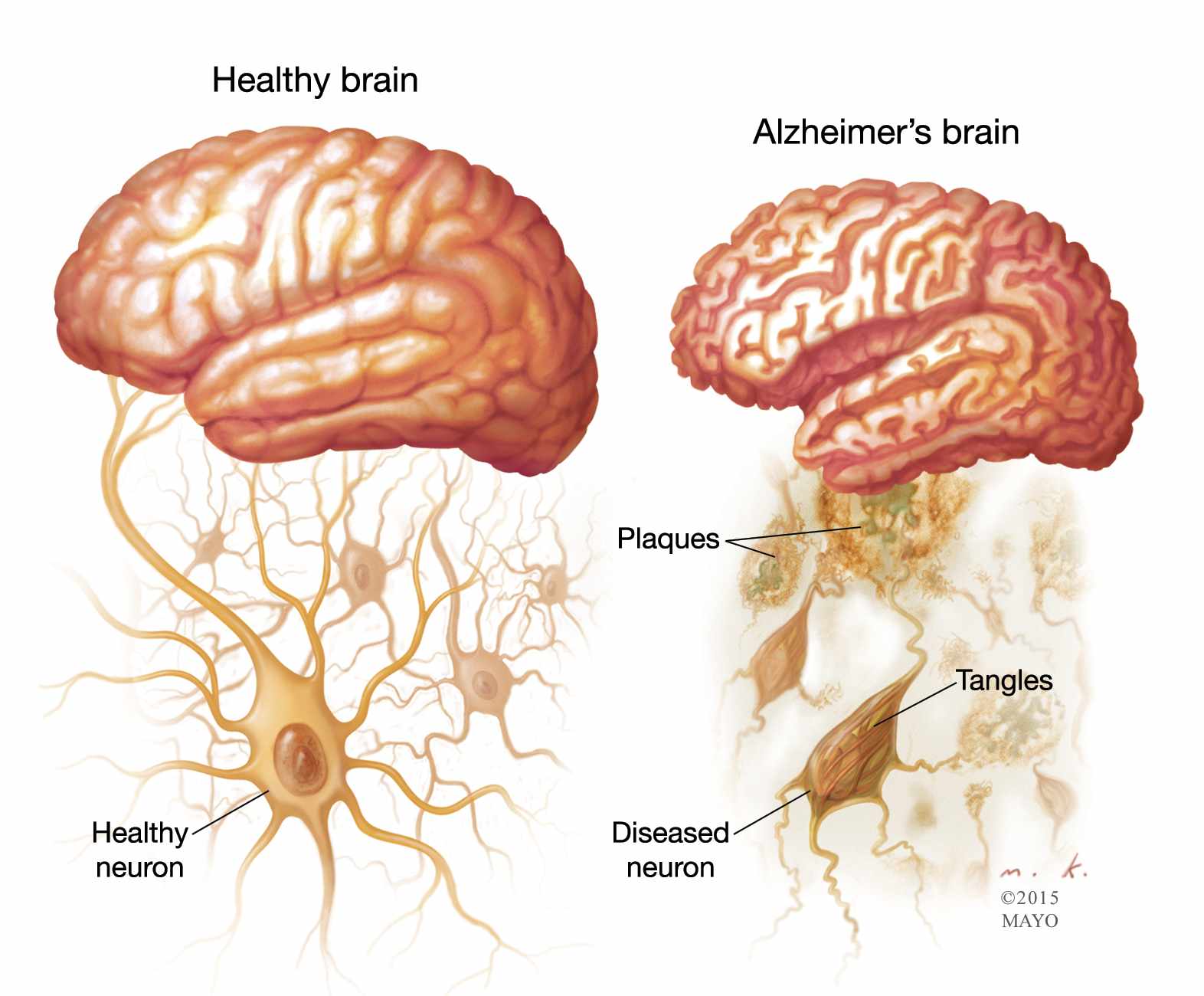 I forgot that my research group was meeting in our classroom instead of the professors office? Does that mean I have Alzheimer’s disease?
I forgot that my research group was meeting in our classroom instead of the professors office? Does that mean I have Alzheimer’s disease?
To answer my own question, no that does not mean that I have Alzheimer’s. One of the common misconceptions by the general population (myself initially included in this group) is that anyone having memory problems, particularly older individuals, has Alzheimer’s. In actuality, Alzheimer’s is a sub category of a neurodegenerative disease called dementia. Although Alzheimer’s makes up the majority of dementia cases (roughly 50-60%) it has specific criteria that separates it from other forms of dementia.
Alzheimer’s is usually noticed by people’s family members and friends first. However, it can be tricky to spot because some of the early symptoms are easily brushed off, such as forgetting newly learned information and confusion. It seems like this happens to most of us on a regular basis, but with Alzheimer’s people continually are in states of confusion and have difficulty performing every day tasks. More advanced Alzheimer’s is easily identified.
I was at a rotary club meeting for lunch while I was shadowing a physician, and the local Alzheimer’s chapter was giving a talk on when you should see a doctor about dementia. The example was that the speaker’s grandmother made chocolate chip cookies every week her whole life. As she was getting older, the grandmother had trouble remember the recipe that she normally would never have to look up. It is instances like these where you should see a physician soon.
What’s happening to my brain if I have Alzheimer’s?
The Alzheimer’s Association does a fantastic job of helping people visualize what’s happening on a cellular level with Alzheimer’s ( Here’s a link to their website http://www.alz.org/alzheimers_disease_what_is_alzheimers.asp )
 What physicians and scientists are seeing on a molecular level is that the brain’s cells (fancy people call them neurons) are dying from an aggregation of proteins. These proteins form a plaque, and they prevent the neurons from functioning normally. Wondering how and why these plaques are forming? I was too! So my neurochemistry class decided to read a paper on what might be going wrong in Alzheimer’s.
What physicians and scientists are seeing on a molecular level is that the brain’s cells (fancy people call them neurons) are dying from an aggregation of proteins. These proteins form a plaque, and they prevent the neurons from functioning normally. Wondering how and why these plaques are forming? I was too! So my neurochemistry class decided to read a paper on what might be going wrong in Alzheimer’s.
Two main points can be taken away from our group’s discussion on Alzheimer’s.
- There is an involvement with the PI3k/Akt pathway
- Insulin resistance is occurring
PI3K/Akt pathway
The findings from our paper rather surprised me. From the other neurodegenerative disease we’ve read about, usually the PI3K/Akt pathway is suppressed. This makes sense to me, because this pathway is involved in cell proliferation and survival. I.e this pathway keeps brain cells alive. In Alzheimer’s however, this pathway is overactive, which results in several negative effects, and it could be contributing to the overall demise of brain cells.
Insulin Resistance
I was rather skeptical about the involvement of insulin in Alzheimer’s until I spoke with one of my peers. As he described what is occurring to me it made sense. Some scientists who are researching Alzheimer’s are actually describing it as Type 3 diabetes. Click on this link if you’d like to read their review article https://www.ncbi.nlm.nih.gov/pmc/articles/PMC2769828/
Once the PI3K/Akt pathway is initiated, the downstream signaling proteins block the insulin receptor by internalizing it into the cell, and the cells become resistance to insulin. This occurs in type two diabetes in the pancreas and fat tissue, and it’s happening in the brain tissue of people with Alzheimer’s. Thus supporting the assertion that Alzheimer’s may be another form of diabetes, it’s simply happening in the brain instead of the pancreas this time. Mind=Blown.